#its from big fish the musical and it's criminally underrated
Explore tagged Tumblr posts
Text
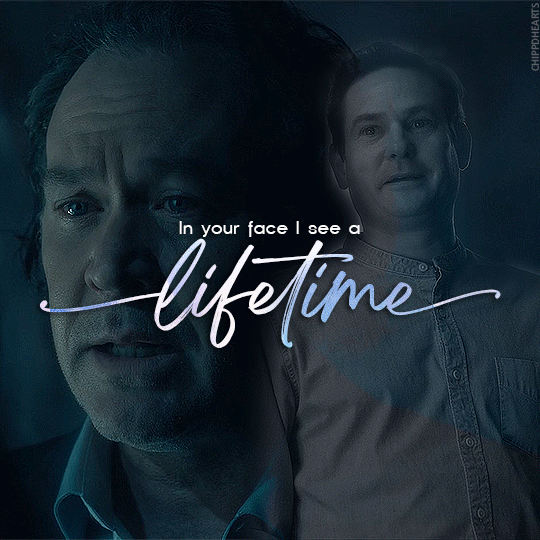
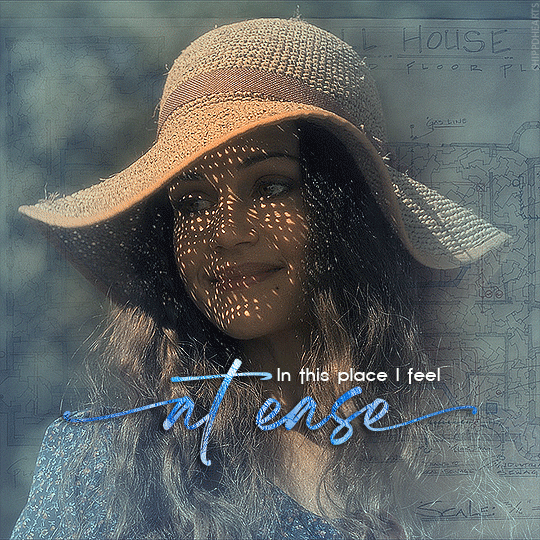

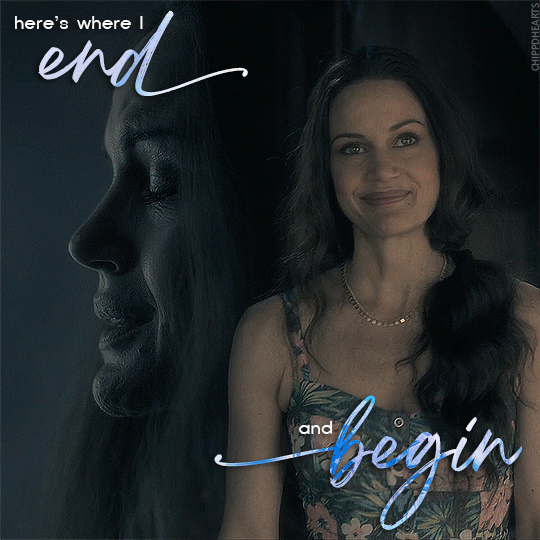
Close your eyes, I'm still beside you. No goodbyes needed today
#the haunting of hill house#olivia crain#hugh crain#carla gugino#henry thomas#flanaganhorror#mikeflanaganuniverse#tuserheidi#usertj#thehauntingsource#wistfulwatcher#userriel#gifs;mine#mine;thohh#i literally attacked myself with that last gif#it's fine... i'm FINE#also I beg of you to listen to this song#its from big fish the musical and it's criminally underrated#okay thats it#thats the post#otp: he's my line
165 notes
·
View notes
Text
Since its 3Hs anniversary some really cool things I like about the game that aren’t talked about enough because the fandom is too busy arguing who is right and who is wrong
The worldbuilding just. 3H has honestly one of my favorite fictional settings. Its just both expansive but also genuinely interesting. I have spent HOURS thinking about the world and made so many ocs its not even funny. I love thinking about the setting of the game so much.
I LOVE the puzzle like way the game explains its world and story. Like I know some people don’t like it because it makes the game a bit too convoluted but personally? I LOVE 3Hs way of not telling everything but rather giving hints and clues the player has to piece themselves. It makes the games world feel more interactive and feels so satisfying. Then again I enjoy that kind of approach to worldbuilding
In general I love 3hs fragmented story and the way how the story is placed in many different fragments. It is geniunely rewarding to replay the game from another storypath and notice the foreshadowing Would’ve the story been probably better had it been just one storypath? Honestly yes. But 3h is ambitious and one of the ways it is is with its fragmented story structure.
The structure of White Clouds is criminally underrated honestly and gets way more hate than it deserves. I love how the first few chapters set up the world of Fodlan and show injustices/conflicts of the world with chapters like the chapter where you face off Lonato for instance. Then the next few chapters are spend in deepening the mysteries such as the conspiracy against the church and the mystery regarding TWSITD. Then Jeralt dies and the last few chapters are spent as “beginning of the End” so to speak, as things clears to the intense climax.
On related note I LOVE how the game handles perspective and how the lords are the respective ways we view the story. I know so many people say “WHite Clouds is same on all paths” but I do feel that’s kinda the point. The story is the same but there are differences that come from the way each of the lords is strongly characterized and has different values, worldviews. The subtle changes on what are focused on in each route also foreshadow what will be focused on each route, which I think is super cool.
Even beyond the lords and routes the game does explore the idea of perspective well. I do think 3h has this very “everyone is the hero of their own story” type of approach to perspective and it shows it well. Each character believes they’re in the right and you can get this view that they view themselves as right. Even Agarthans who are the designated villains have this sense they think they’re in right and that the Nabateans were evil.
The way how games routes being divided into having a different focus is very cool. I love how AM is a smaller scale personal tragedy, how CF is a battle of ideals and how VW explores the world and reveals deeper mysteries. I also love how all of these are related to the lords ideals and worldviews: Dimitri is the most conflicted of the lords so he gets the most characterfocused story focused on . Edelgard is the most ideologically driven so her path focuses on her ideals and battle of wills against Rhea. Claude is the one who is the most freespirited and wants to know the truth so his route focuses on revealing the mysteries.
Also the way the houses characters reflect their respective routes storyline and central themes: Black Eagles are nobles that have conflicting relationships with nobility reflecting Edelgards goal, Blue Lions are all united with the trauma of Tragedy of Duscur, and Golden Deer are a house of misfits who give this “ragtag group who will save the universe with POWER OF FRIENDSHIP and this cool gun I found” vibes which fit the route PERFECTLY
I LOVE how the game plays with and subverts a lot of Fire Emblem tropes. While it does play some tropes straight (dad death and evil cult manipulating behind the scenes) it does do a lot to break from series conventions and playing with ideas to make a more ambitious story. The way it either subverts expectations (The evil emperor being female well intended extremist, Rhea being the Gharnef/Medeus instead of the Nyna archetype she’s presented as), twists familiar tropes to their natural extreme (Dimitris arc is basically the natural extreme end of stereotypical FE lord) and other similar things make the game feeling so planned out, like the writers understood FE stories and wanted to make something that challenges FE while still feeling like it.
The way how every major player acts as foil/pararell to another player is so GOOD. Every faction leader can be compared to the other somehow and that just makes the game SOOOO fun to analyze, trying to find all the similarities and differences and pararells is so rewarding.
A more specific example on this is how i love how the game plays with the idea of holy/sacred weapons. While normally these weapons are artifacts from goddess that defeat dragons, here the holy weapons are bones made from dragons and just???? HOW METAL IS THAT????????? It’s just such a neat way to subvert the idea of sacred weapons. Rather than being blessed creations of the goddess, they are weapons of destruction made by the villains.
I ADORE THE GAMES science fiction elements. I know people say they feel out of place but personally, they make the game memorable for me. I still remember the first time I saw that scene with nukes. I especially love the heavy implication that Sothis isn’t a goddess but rather a powerful alien. It makes her character much more interesting
I know a lot of people don’t like Agarthans but can I just say their backstory being “forced to hide after their land got conquered and desiring it back” making them a dark mirror not just 3h lords/Rhea but FE lords as whole is SO FUCKING METAL. This is what I mean with 3H writers knowing their tropes like back of their hand.
I love how in Part 1 sometimes you’d talk to two characters in Monastery at once instead of just one. It’s something I miss in part 2 honestly.
I love the small sidequests such as the fishing tourney and White Heron cup and wish Part 1 had more of them, it would’ve made the school part feel more alive.
I LOVE how some missions (esp paralogues) have subgoals that you can clear to get better rewards. I wish the game had been more clear with them or even made them main goals of maps sometimes.
I LOVE THE WAY Paralogues act as small gaiden stories that show more of the games world and characters. Its a neat way to let the sidecharacters shine and reveal some neat secrets of the games world and story.
The gameplay loop is honetly fun and satisfying. It is rewarding and while it gets tiring towards the end overall its a good gameplay loop.
I ADORE the aesthetic of Shambhala. Its just so sleek and sinister. The cyrillic letters spelling different words is so cool. Shambhala is my favorite map in the game and the aesthetic is a big reason why.
The games soundtrack is so good!!!!!!!!!! But not only that I LOVE the way its electro elements subtly hint of Agarthans being in control behind the scenes. This is especially cool in Road to Dominion where the electro parts are barely noticeable yet present. but other tracks have subtle electro vibes as well. The other way the games music tells the story (such as use of leitmotifs or how the monastery music changes once Jeralt dies) is great as well.
I love how 3h can be read as an allegory for reformation era and reneissance. Its such an interesting way to read the games events and compare it to a real historical periods there’s quite a bit of f
In general I ADORE the cultural references of the game. There’s surprisingly lot of way the games world is based on real life and the details are just *chefs kiss*
THE GAME IS DENSE WITH THEMATIC IDEAS. Besides the perspective the game tackles ideas of how trauma can affect a persons psyche and worldview (as well how a persons trauma affects the way they interact with the world which in turn can affect the world as well), grief, societal values, historical revisiniosm and so much more. The game tackles SO MANY topics in an interesting manner, it is thematically just as dense as it is storywise as well.
I also love how the games thematic parts work in harmony with the story rather than one overshadowing with the other. Its super refreshing honestly where a games themes and story are both rich and I don’t have to pick one over the other.
Lastly I ADORE the games central message (or at least what I see as the central message anyway): The world’s fucked up and most people want to fix it, but what they deem fixing differs and because of that they go into conflict or outright war rather than trying to find a common ground. Everyone wants a better world but no one can agree what a better world truly means so they fight over it. It was a theme that not only resonates with my personal values but also hit me REALLY hard when I first played it as it’s a theme that I found incredibly relevant and reflective of our own world during the time I played the game for the first time.
So yeah. I made this post since there’s SO MUCH neat things about the game, its gameplay and story that sadly get swept under the rug in favor of either arguing which lord was right/wrong or complaining how the game is an unfinished, rushed and overambitious mess. Is 3h perfect? Hell no. But it’s a game that I hold near and dear to my heart and does genuinely SO MANY THINGS RIGHT, I’m sad no one talks about the genuine strengths the game has anymore, instead just complaining.
I’m not even joking when I say that 3h should be up there as heralded as one of the best, most ambitious and complex JRPGs alongside Xenogears, the first Xenoblade game, Suikoden and Trails series as whole along other such games. Its a shame the games reputation is less like those games and more like Persona 5s where everyone focuses more on its flaws and the fans being annoying than the fact the game does geniunely A LOT right. It’s just that good, ambitious game I love so much.
35 notes
·
View notes
Text
Final Thoughts - 2018 Long Shows
It’s finally here! I’m so close to being done with 2018 (...mostly. We’ll get to it) that I can taste it, but in the meantime, this list is gonna be weird, because there will be things that were already on other lists since I revised my rules of what should be classified how. This post is specifically for any show that ended in 2018 and lasted longer than 13-ish episodes (including shows that aired a second season during the same year or within six months of finishing the previous one), which means that there’s about as much on it as a usual season of shows, but they all had more time to impress - or disappoint me. I’m doing a better job in recent seasons of getting to everything, but last year there were unfortunately things that I missed (I was burned out in the winter) and just have to leave aside for now because I can’t wait any longer for these lists.
Anyway! As usual, let’s start with what I skipped!
* The Seven Deadly Sins: Revival of the Commandments, The Disastrous Life of Saiki Kusuo S2, Cardcaptor Sakura Clear Card, Garo: Vanishing Line, and Mr Tonegawa: Middle Management Blues because I haven’t seen their previous seasons or parent works. (Yes, even Cardcaptor Sakura. Y’all can shoot me later.)
* Hakyuu Hoshin Engi, Beatless, and Basilisk: The Ouka Ninja Scrolls because by the time I was rounding things up, I hadn’t heard a single positive thing about any of them.
Next comes what I dropped -
WORST OF THE YEAR: Steins;Gate 0 (4/10)
What a fucking mess this show was. Aside from a very noticeable downgrade in production talent from its predecessor, the plot meanders and flirts with maybe actually happening this time before just dropping out again, over and over, to the point where I was perfectly willing to drop it two episodes from the finish line because it was such an insult to fans of the original. (Also, continued disgusting mistreatment of the transgender character.)
Gundam Build Divers (4/10)
Taking the Build series from being a well-written kids show to an averagely-written kids show that hides itself in decent mech designs.
Katana Maidens (4/10)
I remember so little about this show, and granted that I did drop it after one episode almost nine months ago, but what I did remember was that it gave me strong KanColle vibes with laughably inconsistent animation and flat characters. Meh.
Darling in the FRANXX (5/10)
This should probably be lower on the list, but I got out of Darling while the getting was good, sixteen episodes in. I understand that future episodes of the show cemented it as crappy right-wing nonsense in addition to pushing worldbuilding out of its fortieth-story window, but the moment it lost me was much sooner, when the crazy yandere female lead was reduced, almost instantly, to Good Anime Waifu as a reward to the protagonist for going against his friends with his selfish motives.
Persona 5 the Animation (5/10)
In addition to not actually finishing in 2018, Persona 5 just did not give me a single reason to watch it when I’d already finished the source game, with middling-to-bad visuals (thanks to the switch from Production I.G. to A-1 Pictures, and not even the team that created the much better-looking Day Breakers OVA before the game was released in the U.S.) and phoned-in music, which is especially unacceptable in a Persona adaptation. Also, we all absolutely called that the studio couldn’t tell the story of the entire game in just 26 episodes.
Record of Grancrest War (6/10)
There’s people that like this one a lot, but I didn’t see much that interested me in the first two episodes. I’ve heard better things about the manga.
Golden Kamuy (6/10)
I had problems with the first half of Golden Kamuy that the second half simply didn’t fix, and it became difficult for me to keep watching - the show still interrupted almost every fight scene with a dick joke, but still wanted to maintain a serious and occasionally frightening tone - and those things simply don’t go together. It needed to either spend more time being funny, or keep its lowest-common-denominator humor out of the fights.
Next, I have two shows that are (potentially permanently) On Hold, simply because it’s time for me to move on and I don’t have the time or energy to marathon them when the Winter shows are starting to wrap up:
Kakuriyo: Bed & Breakfast for Spirits, because even though I initially dropped it, I’ve heard a lot of good things since and I want to eventually give it another shot.
Yowamushi Pedal Glory Line, because despite the fact that I still enjoyed the previous season, this one started right in the middle of my burnout and I only heard bad things about it. I’ll get to it eventually, but it’s a shame that this series has been on a clear trend downwards since its revival.
And finally, the stuff I finished!
The Ancient Magus’ Bride (6/10)
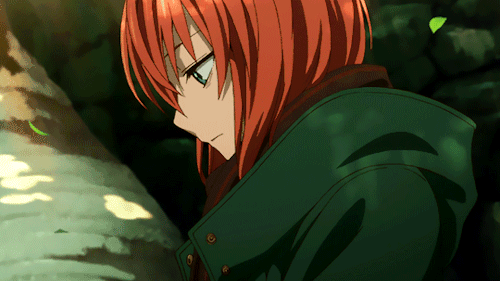
Keep in mind that this is here entirely on the merits of its aesthetic and its side characters - in the end, Ancient Magus’ Bride is a Beauty and the Beast story where the beast gets what he wants without learning to be less of a dick or even apologizing for his clearly wrong actions.
Major 2nd (7/10)
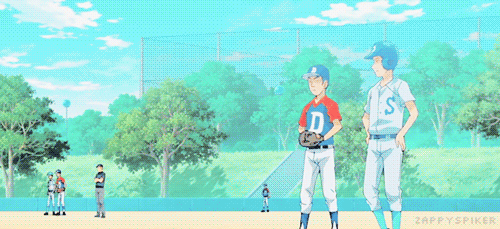
Always pleased to have even just Good sports shows around, and this one is a very effective reboot of a classic series that’s never made its way stateside (man, the underperformance of Big Windup! really did a lot of damage to this genre in the West). With good character development and a decent second-generation premise, Major 2nd has the potential to be the beginning of a solid baseball story, assuming that it gets a needed followup.
IDOLiSH7 (7/10)
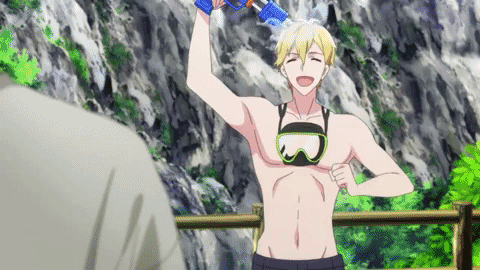
I dropped IDOLiSH7 when it first aired, and though I wound up enjoying it after I was very strongly urged to revisit it, the problems it started with never quite left it behind - that is, it has an okay cast of characters but doesn’t present even passable performance sequences, and if you’re going to include big song-and-dance numbers, they have to be good, or you may as well just be UtaPri.
ClassicaLoid Season 2 (8/10)
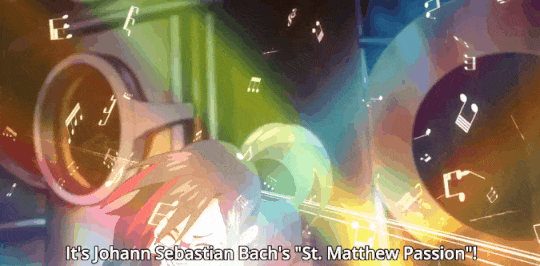
In 2017, I gave the first season of ClassicaLoid a near-perfect 9/10, and while this season gives us a satisfying conclusion to the story, it does things both a little better than the first, and also not quite as great. It’s story is much more well-integrated over the runtime so it doesn’t happen all at once in a few chunks, and the jokes that work are still absolute genius, but there’s simply too much that doesn’t quite land correctly, and a little too much immature humor, for it to reach the same lofty Hall of Fame heights as the first season. Still, one of the most underrated shows I’ve ever seen.
My Hero Academia Season 3 (8/10)
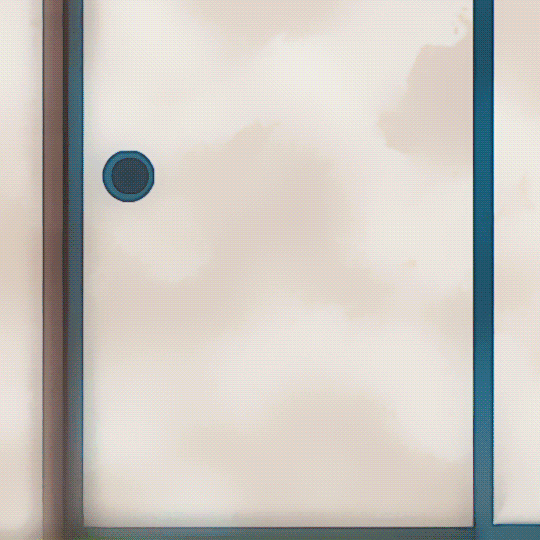
God, Izuku in that onesie is too damn cute.
My problems with Hero Academia are frustratingly persistent - the show is at its best when the students are competing with other students, because outside of last season’s Stain (a villain whose motivation is specifically related to the world of MHA), the villains are just not at all compelling and they all seem a little too generic for their own good. I just want Horikoshi to be a little bit less predictable of an author and do a little less reading of the Standard Shounen Playbook. Luckily, when it works, it works magnificently.
March Comes in Like a Lion S2 (8/10)
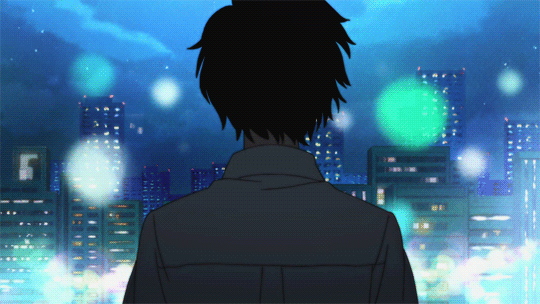
March remains director/auteur Akiyuki Shinbo’s most accessible work, and one of his masterpieces, as a well-paced and marvelously moody story of a depressed shogi prodigy learning to be a normal teenager before his youth completely passes him by, and the fantastic characters that surround him with their own complex problems and motivations. I just really, really hope it gets a third season eventually, because this one did not leave off on a satisfying conclusion.
Speaking of which...
Food Wars! Shokugeki no Soma S3 (9/10)

It’s almost a shame that My Hero Academia became hugely popular purely based on its accessibility to American audiences, because Food Wars pretty squarely deserves to be the reigning Shonen Jump king - each season has only improved on the previous one, and this one was based entirely on a continuing arc that could only have happened in the universe of this show, Fighting Food Fascism. That being said, it also leaves off right in the middle of the arc (because it had almost caught up to the manga), meaning that we have to hope that it can remain relevant long enough for there to be enough source material for another season. I’ll be crossing my fingers until they snap.
Banana Fish (9/10)
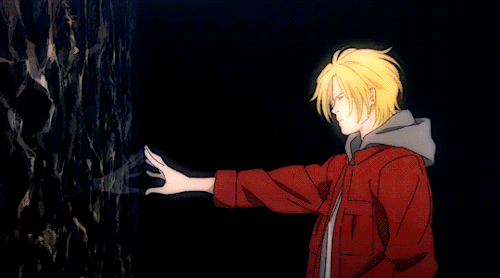
Yes, this has risen a point since my review, but Banana Fish still deserves to be thought of as both a complete masterwork of crime fiction, being fantastically paced and expertly plotted in the use of its many, many twists, and a work that disappointed the side of me that hoped that, in adapting it into the modern day, MAPPA could have managed to get the author to let them depict what is clearly a queer relationship with the authenticity and legitimacy that it deserved. It’s still amazing, though, and Amazon should be pushing it with their most lavishly-made originals. At least it was the last noitaminA show they’ll get to totally bury.
And, finally, the one you all saw coming.
BEST OF THE YEAR: Lupin the 3rd Part V (10/10)
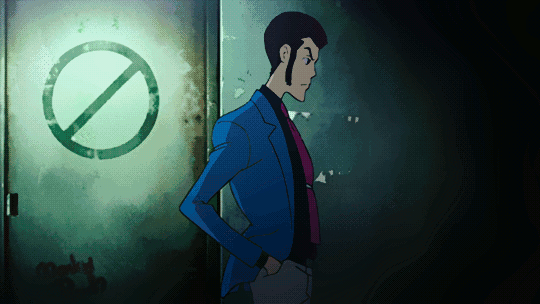
Lupin is, quite simply, one of the pinnacles of the medium. A simple idea that can (and did) go in thousands of different directions, handled by highly creative writers and an animation staff that has been knocking it out of the park for years, despite the fact that it is criminally (heh) unrecognized in the West. To put it simply, there’s a very, very good reason that it’s been around since the 70′s.
Okay! All I have left to do is finish Dragon Pilot (waiting on a friend) and we can get the last two lists out of the way! We’re almost done...
#multi 2018#arcaneanime#year end anime list#final thoughts#lupin the third#my hero academia#banana fish#food wars#the ancient magus bride#March Comes in Like a Lion#idolish7#major 2nd
72 notes
·
View notes
Note
For the Psmith ask game: ALL OF THEM! (If you're up to it, if not I can narrow it down.) For the AU question, what about a musical AU?
1. Favorite Psmith moment
The shoe incident in Mike and Psmith. It’s Psmith at his most trickstery, but it’s also the first time we see him exert himself for someone else’s sake.
2. Favorite Mike moment
When Mike goes to listen to Waller’s speech, and spends the whole time in a terror that Psmith is going to cause some kind of scene--only for him to be the one to start a brawl.
3. Favorite thing about Psmith
The wit, the confidence, the quirky way with words--and the fact that it’s all hiding a very vulnerable person and a loyal friend.
4. Favorite thing about Mike
The way that he repeatedly sacrifices himself for the sake of others without a thought for the consequences to himself.
5. Favorite secondary character
I love Billy Windsor so much. Psmith’s cowboy journalist guide to the grimy streets of New York. Who else would be both sane enough and weird enough to serve as a kind-of mentor to someone as strange as Psmith?
6. Favorite minor character
I’ve got a soft spot for all the other Sedleigh schoolboys--Stone, Robinson, Jellicoe, even Spiller. (And of course Adair, but he’s more than a minor character). All bit parts with strong personalities.
7. Favorite Mike and Psmith moment
The moment when Mike thanks Psmith for trying to take the fall for him.
8. Favorite Psmith in the City moment
Basically any of Psmith’s confrontations with Bickersdyke.
9. Favorite Psmith, Journalist moment
The scenes where Psmith first comes to New York and he’s following around street-smart cowboy journalist Billy Windsor and realizing just how far out of his depth he is.
10. Favorite Leave It to Psmith moment
When Psmith gives Eve the umbrella. You expect him to give a flowery, manipulative speech, and he doesn’t say a word! That one moment does more than a thousand speeches to prove just how seriously in love he is.
11. Favorite antagonist
Bickersdyke just seems like the platonic ideal of a Psmith antagonist: someone very petty with a lot of power and lots of flaws for Psmith to exploit. Their dynamic is hilarious.
12. A favorite line
'Between ourselves,' confided Psmith, 'I'm dashed if I know what's going to happen to me. I am the thingummy of what's-its-name.'
'You look it,' said Mike, brushing his hair.
'Don't stand there cracking the glass,' said Psmith.
(It’s one of the most real and relatable moments of their friendship.)
13. Favorite book in the series
Probably Leave It to Psmith. Except for the lack of Mike, it’s hard to think of any flaws with it.
14. Least favorite book in the series
It probably has to be Psmith, Journalist because it has the most obvious flaws, but it pains me to list it here because I love the character development and the sheer weirdness of the book when compared to the rest of Wodehouse’s output (a cat-loving gangster! where else are you going to get that?).
15. Any extra scenes you wish the books had included?
I wish we could have seen the rest of Psmith’s heckling of Bickersdyke, rather than getting an edited summary from Psmith. I wish we could have had some scenes of Psmith at the fish market, because that would have been so weird to see him in that environment. And I wish we’d have had lots more scenes of Mike and Phyllis. To name a few.
16. Is there anything you’d change about any of the books?
I’d let Eve find the necklace in Leave It to Psmith. In Psmith in the City, I’d give Psmith one unequivocal moment of doing something nice for Mike (that didn’t involve blackmailing anyone and couldn’t be interpreted as just another kind of selfishness).
17. Any headcanons about the events/characters in the books?
Most of them come from other people. You know who you are.
18. Any headcanons about what happens after the end of the series?
See here.
19. Any ideas of what a musical AU would look like?
If we’re talking about “the books as a musical”, I suggest we take Leave It to Psmith, the one that best fits Wodehouse’s genre of “musical comedy without the music” and, well, add music. Emsworth gets Winnie-the-Pooh-type pottering songs. Psmith and Eve get a short little love theme about the umbrella in the rain that gets further developed when they actually fall in love. The two gangsters get a very jazzy villain duet. Miss Peavey gets a song that contrasts her sickly sweet poetess side with her gritty, hard-nosed criminal side. Freddie gets a song comparing his life to the movies. Baxter gets sing-talky Frustration Songs. Let’s find a way to give Phyllis and Mike a love song, too (or at least a song talking about their courtship).
But can we also consider...High School Musical AU. Mike, the kid who was forced into drama club to “help with his social anxiety” reluctantly discovers that he likes acting in musicals and is set to be a star in his school’s big production next year when he gets kicked out because of some ill-thought stunt he pulled when trying to help a friend get out of trouble. He goes to a new school and meets Psmith, the Ultimate Drama Kid who got pulled out of his very art-focused school because his grades were failing, and who has decided to sulk by not having anything to do with the drama club at this school. They both try to reinvent themselves by joining the school sports team. This tiny school has a tiny drama department that is being built up by the efforts of Adair, whose years in the drama club have helped him through a lonely childhood and who wants their school to be a source of Great Theater. During the school talent show, one of their friends’ acts has a member fall sick, leading Psmith to step up and show intense dramatic and musical talent and causing Adair to sweep him up for the school musical. Or at least try to. Psmith and Adair both clash because of prima donna tendencies and Psmith hasn’t forgotten some snarky remarks that Adair made about his supposed lack of musical talent. A school prank gone wrong leads suspicion to fall on Psmith and Mike tries to redirect suspicion by confessing to it himself, only for the real culprit to confess at the last minute. There’s some ridiculous Glee-style musical fight between Psmith and Adair, which leads the two to put aside their differences and gain respect for each other as artists. When Psmith learns that his old school had to pull out of a local theater festival because of widespread illness, he manages to put forward Sedleigh to fill the spot in the schedule, and their performance is a wild success that put Sedleigh on the map as a Decent Little Arts Program.
20. A favorite moment of character development?
I love Psmith learning about the squalor in New York’s slums and resolving to do something about it. And I love Mike’s moment of developing some social tact with Adair.
21. An underrated/easily overlooked moment/scene?
Psmith shows up for the first day of work in the bank, several hours late, and just sits himself down and starts entering numbers in a ledger. In the postage department.
22. What do you like best about the Psmith series?
I love how different each book is from the rest--makes it very easy to keep track of the books in the series (which can be a bit of a struggle with Wodehouse). I love the groundedness in the real world contrasted with the zaniness of some of the schemes and characters. And of course, I love the Mike and Psmith friendship.
23. Talk about anything you want related to the series
“The cry goes round” is such a wonderful catchphrase. It slays me every time. There are probably more meaningful things I could talk about here but I just wanted to mention that.
#psmith pseptember#ask games#psmith#mike jackson#p.g. wodehouse#mike and psmith#psmith in the city#psmith journalist#leave it to psmith#isfjmel-phleg
6 notes
·
View notes
Text
2022 in Anime
i give ratings out of 10 stars based on a rubric that considers the following:
2 points / ambition of what the anime is trying to achieve 3 points / effectiveness of the anime in achieving its aims 4 points / my personal, subjective enjoyment 1 point / pacing +1/-1 miscellaneous
so with that said... ⭐⭐⭐⭐⭐⭐⭐⭐⭐⭐ (2 anime)
Ping Pong The Animation - believe the hype. incredible.
Attack on Titan: The Final Season Part 2 - honestly if this show sticks the landing, it may become my favorite anime of all time. it's just the best week to week viewing experience. my jaw lives on the floor. and i spend at least half an hour after every episode debating ethics with my friends. amazing.
⭐⭐⭐⭐⭐⭐⭐⭐⭐ (6 anime)
samurai champloo - music! animation! episodic storytelling! STYLE! this anime just has style
ranking of kings - most loveable anime characters of all time. classic fantasy setting. stripped down for honest and charming character storytelling. hilling is best girl of the season FIGHT ME
Golden Kamuy - slow start and then POW. perfect shonen story in an atypical setting. juggles a large cast of characters with competing motivations expertly so you can never predict the twists and turns. criminally underrated
Vivy: Fluorite Eye's Song - managed to make me - a known hater of ai/robot stories - glue my eyes to the screen for 3 days. tons of heart and fun storytelling.
Odd Taxi - this is a novel come to life. some of the best dialogue in anime history.
Kotaro Lives Alone - cutest anime child of all time must be protected
⭐⭐⭐⭐⭐⭐⭐⭐ (6 anime)
princess jellyfish - kind of the pinnacle of a generation of shoujo for me
yona of the dawn - tbh i can't remember if i watched this last year or in 2022 but anyway it's great. gripping stuff. the lack of season 2 is criminal and i'm gonna have to collect the manga smh
kaguya-sama love is war season 3 - continued great direction, gimmicks, and jokes
ya boy, kongming! - the shock of the season. somehow this is actually funny and the rap parts are genuinely powerful. i didn't know anime could do music this well tbh
the devil is a part-timer season 1 - had fun watching but nothing sticks with me
parasyte - truly ambitious, gripping sci-fi that doesn't spoonfeed you answers but examines a dilemma from every angle
⭐⭐⭐⭐⭐⭐⭐ (4 anime)
banana fish - high stakes international thriller with a diverse cast and a gary stu at the helm
darling in the franxx - the not quite as good cousin of evangelion, interested in pubescent sexuality in big robots. major points for bonkers ambition. i was stunned with what it was trying to do.
spy x family - that little girl really is cute
space patrol luluco - studio trigger on speed with 7 min episodes
⭐⭐⭐⭐⭐⭐ (8 anime)
the tatami galaxy - smart, stylish, creative use of the medium.
made in abyss season 1 - a classic hero's journey to confront the unknown and come back forever changed
btooom! - prisoners' dilemma with explosions
demon slayer season 2 - i liked that guy with a bunch of wives and the bad guys
black lagoon - peak 90s anime
moriarty the patriot season 1 - no one told me moriarty is a righteous socialist antihero. it's fun.
theatre of darkness: yamishibai - horror vignettes in 5 minutes for halloween
ascendance of a bookworm season 1 - slow, dull isekai about learning to make a book (not write a book. make a book) until it suddenly gets political in the last couple episodes. can't decide if it's worth continuing tbh
⭐⭐⭐⭐⭐ (4 anime)
seraph of the end - 'has-to-learn-the-same-lesson-500-times-protagonist'
my dress up darling - i watched the first two episodes in a dark room with strangers and it felt like a soft core porn showing but for kids ??
mushoku tensei: jobless reincarnation season 1 - damn this for having good animation and actually decent pacing because this was gross and i wanted to give it a garbage rating
horimiya - cute romance but i forgot everything about it
⭐⭐⭐⭐ (1 anime)
no game no life season 1 - confused that this was such a phenomenon when it came out. it's fine i guess.
⭐⭐⭐ (5 anime)
that time i got reincarnated as a slime season 1 - when given a name for the 1st time, male goblins evolve into 'hobgoblins' and female goblins evolve into...wait for it...'goblinas.' i died laughing + that's this show's legacy to me
danganropa - edgy and strange and not altogether convincing but it has its moments
my teen romantic comedy snafu - 🤷
call of the night -pretty colors! boring anime¡
death parade - philosophy for dummies the anime
⭐⭐ (1 anime)
k-on season 1 - i know it's a classic & i'm so sorry i was just so bored. cute girls doing cute things is not for me! maybe if it was a movie, but a whole 24 episode show!?!?
⭐ (1 anime)
overlord - overpowered isekai fantasies for men are something. i'll leave it at that.
& then ongoing shows that i'm not going to rank until i finish them (but actually all are pretty good so far) - chainsaw man, blue lock, mob psycho season 3, to your eternity, ao ashi, made in abyss season 2, dororo
0 notes